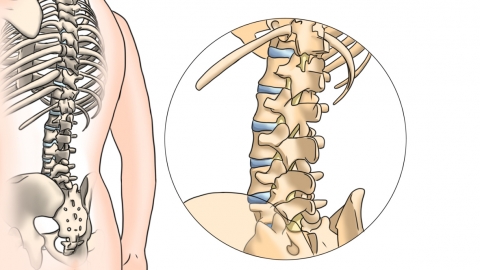How to treat leg pain caused by herniated lumbar disc compressing the nerve
Generally, treatment options for leg pain caused by lumbar disc herniation and nerve compression include conservative treatment, physical therapy, medication, traditional Chinese medicine (TCM), and surgical treatment. It is recommended to seek timely medical evaluation at a hospital and undergo appropriate treatment under a doctor's guidance. The detailed analysis is as follows:

1. Conservative Treatment
In the early stages of the condition, patients should rest in bed as much as possible, reduce lumbar movement and weight-bearing activities, to allow adequate rest and recovery for the intervertebral discs. It is generally recommended to remain bedridden for about three weeks, after which patients can gradually resume ambulation while wearing a lumbar support belt.
2. Physical Therapy
Includes treatments such as heat application, massage, and traction. Heat application helps improve blood circulation in the lumbar region and relieve muscle tension and pain. Massage can relax lumbar muscles and enhance local blood circulation. Traction can widen the intervertebral space, reduce intradiscal pressure, and thereby alleviate nerve compression.
3. Medication
Patients may take medications such as ibuprofen sustained-release capsules, mecobalamin tablets, and Yaotongning capsules under a doctor's supervision. Ibuprofen sustained-release capsules have anti-inflammatory and analgesic effects, effectively relieving leg pain symptoms. Mecobalamin tablets aid in repairing damaged nerves and improving nerve function.
4. Traditional Chinese Medicine (TCM)
Includes therapies such as acupuncture and tuina (Chinese therapeutic massage). Acupuncture involves stimulating specific points on the waist and legs to regulate meridian energy flow and alleviate pain and numbness. Tuina techniques can relax lumbar muscles, adjust lumbar facet joint misalignments, improve the positional relationship between the lumbar disc and nerve roots, and reduce nerve compression.
5. Surgical Treatment
Surgery is suitable for patients with severe symptoms unresponsive to conservative treatment, recurrent episodes, significant nerve root damage, or cauda equina compression. Minimally invasive procedures such as transforaminal endoscopic discectomy and disc radiofrequency ablation are commonly used. These minimally invasive surgeries offer advantages of reduced trauma and faster recovery, although their indications are relatively limited.
During treatment, patients should avoid strenuous exercise and excessive fatigue. Suitable physical activities such as swimming or backward walking may be chosen to help strengthen the muscles of the lower back.







